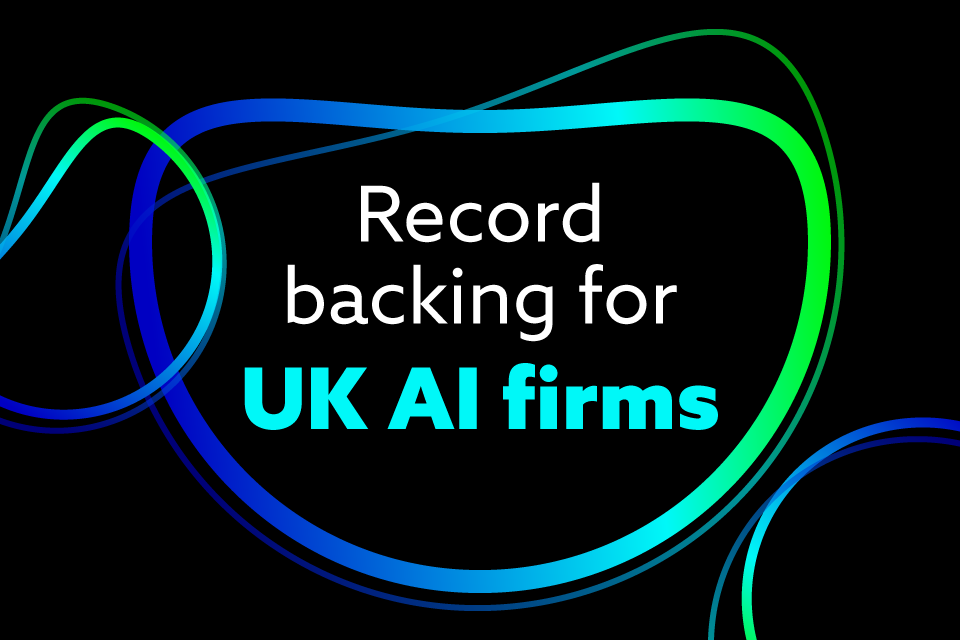Tools & Platforms
VT to incorporate AI in its admissions process

BLACKSBURG, Va. – Virginia Tech announced plans to incorporate artificial intelligence into its admissions process starting August 1, aiming to enhance efficiency while maintaining human oversight in application reviews.
The university’s decision comes as application volumes continue to rise. Over the past 10 years, the school’s seen a 10% increase in applicants. Under the new system, application essays will receive evaluations from both AI technology and a human, replacing the previous two-person review method.
“Virginia Tech is turning to AI as a tool to help people make better-informedtime-consuming, fair, and consistent decisions in the application process,” said Mark Owczarski, Virginia Tech spokesperson.
Owczarski emphasized that human judgment remains central to the evaluation process. “The decisions in terms of grading and scoring are by people and people alone,” he said. “AI is a tool that people are using to ensure that our process is consistent, fair and beneficial.”
The announcement has sparked discussion among current Virginia Tech students. Katherine Woody, a Virginia Tech student, expressed reservations about the new approach.
“A big part of applying to a school is very personal,” Woody said. “I think having a person read that, even if it is time-consuming, does add that element of understanding.”
Fellow student Giovanni Mantovani shared similar concerns. “I think this kind of process, admissions, is something that we should take personally, one-by-one,” he said.
As part of this transition, Virginia Tech has adjusted its early admissions deadline from November 15 to November 1. The university clarified that AI implementation will be limited to essay evaluation support, though future expansions of AI use remain possible.
Copyright 2025 by WSLS 10 – All rights reserved.
Tools & Platforms
CoreWeave Merges AI Cloud with Self-Learning Tech for Smarter Systems

CoreWeave, Inc. (NASDAQ: CRWV) has announced the acquisition of OpenPipe Inc., a leader in reinforcement learning (RL) platforms for training AI agents, marking a strategic move to strengthen its AI cloud capabilities. OpenPipe’s technology is designed to enable developers to train agents using advanced machine learning techniques, allowing the agents to learn from experience and improve over time in accuracy, performance, and reliability. The platform includes Agent Reinforcement Trainer (ART), one of the most widely used open-source RL toolkits for training agents [5].
Brian Venturo, Co-founder and Chief Strategy Officer at CoreWeave, highlighted the importance of reinforcement learning in enhancing model performance for agentic and reasoning tasks. The acquisition integrates OpenPipe’s self-learning tools with CoreWeave’s high-performance AI cloud, creating a more comprehensive platform for developers to build scalable intelligent systems. Kyle Corbitt, Co-founder and CEO of OpenPipe, added that the partnership with CoreWeave enables the expansion of their vision to accelerate the development of reliable, high-performing, and cost-effective AI systems [5].
The acquisition builds upon CoreWeave’s recent acquisition of Weights & Biases, a move that aligns with the company’s strategy to deepen its vertical integration across its technology stack. By incorporating new reinforcement learning and fine-tuning capabilities, CoreWeave is offering customers greater flexibility to train, adapt, and optimize their AI models. This expansion also supports AI labs and enterprises in solving complex problems autonomously, as reported by industry experts in the field [5].
CoreWeave’s AI cloud platform is purpose-built for the scale, performance, and expertise required to power AI innovation. The company operates a growing network of data centers across the U.S. and Europe, and it has been recognized as one of the TIME100 most influential companies and featured on Forbes Cloud 100 in 2024. The acquisition of OpenPipe further positions CoreWeave to meet the growing demand for AI infrastructure, particularly in the realm of autonomous decision-making and learning systems [5].
In addition to this strategic acquisition, CoreWeave recently participated in the Goldman Sachs Communacopia + Technology Conference, where CEO Michael Intrator and Chief Development Officer Brannin McBee provided insights into the company’s vision and roadmap for the future [6]. This engagement with major financial institutions underscores CoreWeave’s ongoing efforts to enhance transparency and communication with its investors and the broader market.
The market has seen mixed reactions to CoreWeave’s recent developments. While the stock initially saw gains following NVIDIA’s strong AI GPU earnings, recent insider selling by top executives and major shareholders like Magnetar Financial triggered a decline in its share price [2]. Despite these short-term fluctuations, CoreWeave remains a key player in the AI infrastructure sector, with strategic partnerships such as the recent expansion with Applied Digital (APLD) further solidifying its position in the market [4].
Source:
[1] CoreWeave, Inc. (CRWV) Is One Of The Biggest Beneficiaries Of NVIDIA’s Booming AI GPU Demand, Says Jim Cramer (https://finance.yahoo.com/news/coreweave-inc-crwv-one-biggest-192935144.html)
[2] CoreWeaves’ Stock Slides as Insider Selling Sparks Investor Concerns (https://www.marketwatch.com/story/coreweaves-stock-slides-as-insider-selling-sparks-investor-concerns-fef032fe)
[3] How Does Reinforcement Learning Power Agentic AI Systems (https://www.getmonetizely.com/articles/how-does-reinforcement-learning-power-agentic-ai-systems)
[4] CoreWeave Just Gave This Data Center Stock a Big Boost (https://finance.yahoo.com/news/coreweave-just-gave-data-center-162455061.html)
[5] CoreWeave to Acquire OpenPipe, Leader in Reinforcement Learning (https://www.businesswire.com/news/home/20250903667712/en/CoreWeave-to-Acquire-OpenPipe-Leader-in-Reinforcement-Learning)
[6] CoreWeave to Participate in the Goldman Sachs Communacopia + Technology Conference (https://investors.coreweave.com/news/news-details/2025/CoreWeave-to-Participate-in-the-Goldman-Sachs-Communacopia–Technology-Conference/default.aspx)
Tools & Platforms
New AI Vaccine Research Program Launched With Ellison Institute Of Technology

The University of Oxford has recently announced an ambitious new project aimed at revolutionizing vaccine development. This initiative is supported by significant research funding of £118 million, which the university has secured through its strategic partnership with the Ellison Institute of Technology (EIT). The goal of this project is to develop innovative solutions to some of the most challenging infectious diseases that continue to threaten public health worldwide.
At the core of this new program is the Oxford Vaccine Group, a highly experienced and respected team within the university’s Department of Paediatrics. The project, named CoI-AI (Correlates of Immunity-Artificial Intelligence), aims to leverage modern technology and scientific expertise to enhance understanding of how the human immune system responds to various pathogens.
This initiative seeks to combine Oxford’s extensive knowledge in human challenge studies, immune science, and vaccine development with EIT’s cutting-edge artificial intelligence (AI) technology. This collaboration promises to pave the way for more effective and targeted approaches to preventing and controlling infectious diseases.
The research will focus on understanding how immune defenses react to some of the most problematic germs that cause severe infections and contribute to the rise of antibiotic resistance. These include bacteria such as Streptococcus pneumoniae, Staphylococcus aureus, and Escherichia coli, which are responsible for widespread illnesses and have become resistant to traditional vaccine strategies.
To achieve this, scientists will use human challenge models, where volunteers are carefully and safely exposed to bacteria within controlled environments. This approach allows researchers to observe immune responses directly and in detail. By integrating modern immunology techniques with advanced AI tools, the team hopes to identify the immune responses that are most predictive of protection, thereby informing the development of more effective vaccines.
In December 2024, Oxford University and EIT announced a strategic alliance aimed at fostering long-term collaboration. This partnership aims not only to develop innovative solutions for pressing health challenges but also to cultivate the next generation of scientific leaders. EIT’s unique approach combines advanced research capabilities with a strong commercial focus, striving to generate sustainable and ethically grounded scientific breakthroughs. The alliance brings together diverse talents and expertise across multiple fields, including generative biology, clinical medicine, plant science, sustainable energy, and public policy.
Supporting these endeavors is a robust computing infrastructure facilitated by Oracle, along with a world-class artificial intelligence team. Additionally, the partnership includes a Scholars program dedicated to nurturing the next wave of the world’s top scientists. Through these combined efforts, Oxford and EIT are working together to address some of the most enduring and complex health challenges of their time, all with the goal of improving global health. outcomes.
KEY QUOTES:
“This programme addresses one of the most urgent problems in infectious disease by helping us to understand immunity more deeply to develop innovative vaccines against deadly diseases that have so far evaded our attempts at prevention. By combining advanced immunology with artificial intelligence, and using human challenge models to study diseases, CoI-AI will provide the tools we need to tackle serious infections and reduce the growing threat of antibiotic resistance. This is a new frontier in vaccine science.”
Professor Andrew Pollard, Director of the Oxford Vaccine Group
“This programme will give us completely new tools to study how vaccines work at both a cellular and system-wide level, by studying infections in real time, in people, and using smart immunology tools and data to find the answers. This will open up whole new avenues to vaccine design as we improve our understanding of infection and immunity.”
Professor Daniela Ferreira, Deputy Director of the Oxford Vaccine Group
“Researchers in the CoI-AI programme will use Artificial Intelligence models developed at EIT to identify and better understand the immune responses that predict protection. This vaccine development programme combines Oxford’s leadership in immunology and human challenge models with cutting-edge AI, laying the groundwork for a new era of vaccine discovery – one that is faster, smarter, and better able to respond to infectious disease outbreaks throughout the world.”
Larry Ellison, Chairman of the Ellison Institute of Technology
“This is a major step forward in our strategic alliance with the Ellison Institute. Together, we’re combining Oxford’s strengths in vaccine science with EIT’s bold vision to tackle some of the toughest problems in global health. This is about drawing more talent and capacity to the Oxford ecosystem to turn scientific challenges into real solutions for the world.”
Professor Irene Tracey, Vice-Chancellor of the University of Oxford
Tools & Platforms
Investment in British AI companies hits record levels as Tech Sec pitches UK as global magnet

- Record £2.9 billion invested in British AI companies last year – with average deals worth £5.9 million, fuelling the Plan for Change.
- Regulators, investors and tech companies urged to hammer home the UK’s enterprise and opportunity credentials, with plans to corner a new AI trust industry.
- Red tape to be slashed for regulators in key sectors of the economy – speeding up the delivery of ground-breaking innovations.
Investors and regulators are being urged to go further and faster to deliver new growth for the UK’s AI sector as part of the government’s modern industrial strategy, as new figures show backing for British AI firms hit record levels last year.
A total of £2.9 billion in private support and average deals worth £5.9 million has set the stage for further investment and new opportunities for both AI companies and financial backers alike.
It means British AI companies alone now contribute £11.8 billion to the UK economy – double the amount in 2023 – while AI employment tops 86,000 across the country. This record investment is unlocking new growth which will benefit communities – helping fuel further development and putting more money in people’s pockets through AI.
The figures also show at least double the number of AI companies are now based in the Midlands, Yorkshire, Wales and North West compared to just 3 years ago.
In a speech to city bosses and tech firms at Mansion House this evening, the Technology Secretary called on industry to step up and match the UK government’s ambition when it comes to AI – in a bid to drum up further investment and see more AI companies call Britain home.
He pointed to the government’s efforts to slash red tape, build infrastructure such as data centres and attract top talent – with a fresh push to work in partnership with industry to maintain the UK’s position as a world leader.
Addressing the room the Technology Secretary said:
We have learned the lesson of history: countries can only prosper if they get the big calls right, if they decide to go beyond the expected and embrace the future, to innovate not imitate – refusing to be constrained by the problems of today by taking up the challenges of tomorrow. In these uncertain times, I am certain that’s what it takes to get a global competitive edge.
We want you to keep investing here, keep building here – list here, scale here. If you invest in Britain, you’ll share in that competitive edge.
Chancellor of the Exchequer Rachel Reeves said:
This government is slashing burdensome red tape and making the conditions for record investment in AI, so that once again the UK can lead the way.
This country has huge potential, but our economy has been stuck on pause for too long. By giving companies the right environment to innovate, grow and create jobs we are changing that, delivering economic growth to put more money in working people’s pockets.
To capitalise on this momentum, the Technology Secretary has set out new plans to expand the UK’s AI offering, bolstering its sovereign AI capabilities by delivering new opportunities for the sector.
Public trust in the technology is key to its uptake – with more sectors of the economy primed to tap into the potential of AI.
It is a vital part of driving both workforce and investor confidence to spark the new jobs and economic growth which are already transforming communities. To capitalise on this potential, a new AI assurance roadmap launched today will look to add billions of pounds to the economy and create scores of new jobs by unlocking the growth of a key industry for the UK’s AI sector.
At its heart, AI assurance centres on ensuring independent experts can run the rule over AI systems – making sure they are trustworthy without leaving developers to mark their own homework. The government will now press ahead with plans to establish a dedicated AI assurance profession – bringing together key stakeholders from across the tech sector who will help strengthen the quality of this new standalone industry. This will support developers to better navigate and understand the regulatory landscape – saving time while also fostering public confidence and trust in the technology for users as its adoption is ramped up across the economy.
Its work will include the development of a professional code of ethics and detail the kind of access to models and systems that AI assurance professionals will need to carry out their work.
This will also give rise to a tailored skills and competencies framework that covers a range of areas from professional training and education to the establishment of a fully-fledged professional certification scheme.
Kicking off this work, a new AI Assurance Innovation Fund worth £11 million will be launched – with applications due to open in the Spring. This will support the development of new and innovative AI assurance tools to future-proof the market and ensure the UK is ready to response to rapid developments in AI capabilities – laying a foundation for a new industry geared towards growth and protecting the British public.
The announcements made today also include a new push from the Technology Secretary to slash regulatory burdens and get game-changing innovations for key sectors of the economy to market faster than ever before.
A £2.7 million boost will develop regulator capability in AI so that they are better able to streamline the regulatory environment and speed up the commercialisation of transformative technologies that will boost economic growth and improve the lives of the public.
Areas set to benefit from these plans include Ofgem being supported to develop an innovative AI tool to accelerate approvals for clean energy infrastructure, the Civil Aviation Authority using AI to analyse air accident reports and accelerate drone adoption, and the Office for Nuclear Regulation enabling the nuclear industry to use AI to safely and efficiently manage high risk nuclear waste.
Further Information:
Industry reaction to this evening’s announcements:
Sharron Gunn, Chief Executive of BCS, The Chartered Institute for IT said:
The government’s commitment to the creation of an AI assurance profession, whose practitioners are proud to be accountable to a code of ethics, is a huge step forward.
It’s also right that a consortium, including professional bodies, will be tasked with developing this Code, and with recommending the right paths for registrations and certifications for AI assurance.
The measures will grow this emerging market at the pace we need, and build public confidence that the people working on AI systems are responsible and trustworthy.
-

 Business5 days ago
Business5 days agoThe Guardian view on Trump and the Fed: independence is no substitute for accountability | Editorial
-
Tools & Platforms3 weeks ago
Building Trust in Military AI Starts with Opening the Black Box – War on the Rocks
-

 Ethics & Policy1 month ago
Ethics & Policy1 month agoSDAIA Supports Saudi Arabia’s Leadership in Shaping Global AI Ethics, Policy, and Research – وكالة الأنباء السعودية
-

 Events & Conferences4 months ago
Events & Conferences4 months agoJourney to 1000 models: Scaling Instagram’s recommendation system
-

 Jobs & Careers2 months ago
Jobs & Careers2 months agoMumbai-based Perplexity Alternative Has 60k+ Users Without Funding
-

 Education2 months ago
Education2 months agoVEX Robotics launches AI-powered classroom robotics system
-

 Funding & Business2 months ago
Funding & Business2 months agoKayak and Expedia race to build AI travel agents that turn social posts into itineraries
-

 Podcasts & Talks2 months ago
Podcasts & Talks2 months agoHappy 4th of July! 🎆 Made with Veo 3 in Gemini
-

 Podcasts & Talks2 months ago
Podcasts & Talks2 months agoOpenAI 🤝 @teamganassi
-

 Education2 months ago
Education2 months agoAERDF highlights the latest PreK-12 discoveries and inventions





















